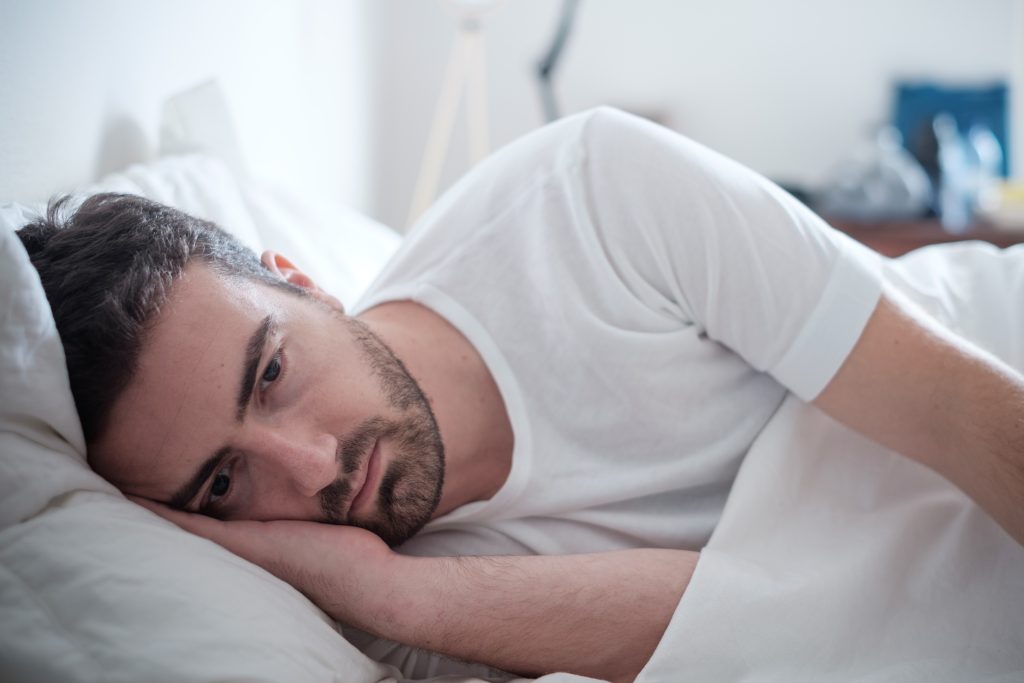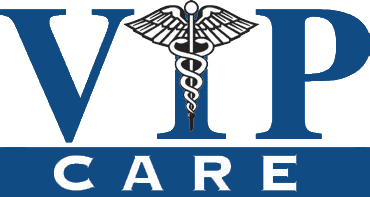
- Insomnia is the perception by the patient of inadequate or abnormal sleep:
- Difficulty initiating sleep
- Frequent awakenings
- Reduced sleep time
- Non-restorative sleep: (fibromyalgia is associated with this)
- Most common sleep problem, with 20-40% of adults having sleep difficulty last year; 17% (1/6) considering the problem serious; affects up to 50-70 million U.S.
- Prevalence higher in women, increases with age and socioeconomic class.
- Acute: days – weeks, acute stress or environmental change, jet lag, drug withdrawal.
- Chronic: 25-30% have concomitant psychiatric diagnosis
- Medical causes: arthritis, COPD, sleep apnea, hyperthyroidism, RLS
- Alcohol: interferes with REM sleep & ^GERD, sleep apnea
- Psychiatric: Depression, anxiety, panic disorder, PTSD, S.A.D.
- Consequences:
- Sleepiness
- Negative mood
- Impairment of performance
- Fatigue
- Mood changes
- Difficulty concentrating
- Impaired daytime functioning
- Sleep Cycles: 4-5 90-100 min. cycles: Stages 1-4 NREM, then REM:
- Stage 1- sleep onset: 1-7 minutes; low arousal thresholds (1st cycle)
- Stage 2- 10-25 minutes (1st cycle)
- Stages 3-4- slow wave, or delta sleep: 25-45 min.; arousal thresholds highest (1st cycle)
- REM- end of 1st sleep cycle: 1-5 minutes
- Normal latency from sleep onset to 1st REM: 90 minutes
- Treatment:
- Behavioral: Relaxation therapy w/ progressive muscle relaxation, imagery training and meditation (reduce intrusive thoughts, racing mind), abdominal breathing, sleep restriction therapy, stimulation control therapy, cognitive therapy.
- Sleep restriction therapy- curtail time spent in bed to ^ sleep efficiency
- Stimulus control therapy- bed= rapid sleep onset; no reading/T.V., regular AM rising time, avoid daytime naps
- Cognitive therapy- replace dysfunctional attitudes re. sleep
- Drug Therapy:
- Sedative/ hypnotics:
- Ambien (Zolpidem): non-benzo. hypnotic; short acting; T1/2= 1.5-2.5 hrs.; 5-10 mg
- Halcion (Triazolam): benzo., intermed. acting; T1/2= 2-5 hrs.; .25 mg
- Sonata ( Zaleplon): non-benzo.; 5-10 mg hs
- Restoril (Temazepam): benzo.; intermed.-acting; T1/2= 10-20 hrs.; 7.5-30 mg hs
- Dalmane (Fluazepam): benzo.; long-acting; T1/2= 2-4 hrs; 15 mg hs
- Prosom (Estazolam): benzo.; intermed.-acting; T1/2= 17 hrs; 1-2 mg hs
- Tranxene (Chorazepate): benzo.; long-acting; T1/2= 2-4 days; 7.5 mg; insomnia+anxiety
- Klonopin (Clonazepam): benzo.: intermed.-acting; T1/2= 2-3 days; 1 mg hs
- Lunesta (Eszopicione)- non-benzo. Hypnotic: 1mg hs- difficulty falling asleep, 2mg hs; difficulty staying asleep; avoid high fat meal
- Rozerem- melatonin mech.; 8 mg 30 min. before hs
- Antidepressants: SSRIs: (not actual indication): Zoloft, celexa, prozac, paxil, lexapro; remeron; trazodone
- Atypical antipsychotics: (not an actual indication): zyprexa, seroquel, risperdal
- Antihistamines: benadryl, atarax
- Melatonin: helps regulate circadian rhythm; jet lag; aids ability to stay asleep
- Valerian: sleep-inducing, tranquilizing; depresses CNS & relaxes muscles
- Sedative/ hypnotics:
- Behavioral: Relaxation therapy w/ progressive muscle relaxation, imagery training and meditation (reduce intrusive thoughts, racing mind), abdominal breathing, sleep restriction therapy, stimulation control therapy, cognitive therapy.
- Sleep and Aging:
- After age 20, delta sleep declines as a percentage of total sleep (25%-5%)
- REM remains preserved
- Nocturnal awakenings and arousals increase with age
- Decrease sleep efficiency to about 80%Benzos: klonapin
- Dopamine agonists: sinemet, mirapex .25 mg-.5mg
- Restless Leg Syndrome/ PLMS: nocturnal myoclonus
- Benzos: klonapin
- Dopamine agonists: sinemet, mirapex .25 mg-.5mg
- Narcotic analgesics: i.e. Vicodin, etc.
- General Sleep Hygiene
- Wake up same time each day
- Discontinue caffeine 4-6 hrs. before bedtime
- Avoid nicotine in late evening (stimulant)
- Avoid alcohol too close to bedtime; may cause wakening later in the night
- Avoid heavy meals too close to bedtime; light snack preferable
- Regular exercise late PM may deepen sleep; avoid vigorous exercise w/in 3-4 hrs. hs
- Minimize noise, light, excessive temperatures during sleep period
- Move alarm clock from bed if source distraction
- Adopt relaxing bedtime routine, i.e.: warm bath, light reading
